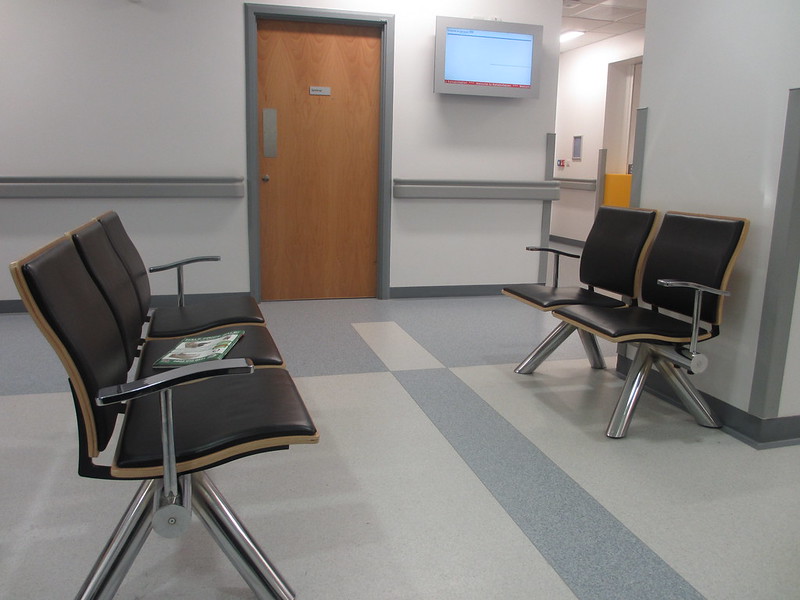
“Dobbs” is Devastating to the IVF Community
Like so many, I’m devastated by the reversal of Roe v. Wade, which had guaranteed women the right to an abortion. And as it is for so many, it’s personal for me. However, I’m not seeking an abortion. I’m actively trying to get pregnant.
While this ruling most severely and immediately impacts people seeking or needing an abortion, it will very likely have an impact on women’s reproductive health and care, well beyond the termination of a pregnancy.
I am a Jewish woman. Jewish people have a higher rate of infertility and of being carriers of genetic diseases than the general population. Statistically, we often need medical intervention to get pregnant and/or create healthy children. The reversal of Roe, contained in the June 24 Dobbs vs. Jackson Women’s Health Organization ruling, could potentially make these technologies, which generate and test embryos, illegal.
As a society, we tend to romanticize the idea of getting pregnant and how “easy” it is. Not everyone decides that they want to be parents and then, after a few tries, find themselves pregnant. My husband and I have been “trying” to conceive for two years. When we were referred to a reproductive endocrinologist, we were diagnosed with Male Factor Infertility. In couples experiencing infertility, approximately 35% is due to male factors.
We were immediate candidates for IVF (in-vitro fertilization, during which an egg is fertilized by sperm in a petri dish) and ICSI (intracytoplasmic sperm injection, which injects one sperm directly into an egg). I thought, “Great, we have a biological issue. It’s been diagnosed and it’s solvable. We’ll be parents before we know it.” I was wrong.
I naively assumed we would be able to start treatment immediately. We received our diagnosis and had our first consultation in July 2021. It took months of subsequent testing and pushing paperwork until we were able to start treatment almost 6 months later. Above all else, IVF is a process of waiting.
I have had to inject my body with drugs that cause me to ovulate multiple eggs instead of the typical single one. The hoped-for outcome of this process would have been the transfer of at least one healthy embryo back into my uterus while any extra were frozen for future use. We have undergone three cycles and due to various obstacles and complications, we are still waiting to become parents over a year later. Even with the help of in vitro fertilization, the pregnancy and live birth rates decrease as women get older. This reality makes all the waiting even more excruciating.
This year was tough, even though most of our struggles played out in a world in which the assisted reproductive technologies my husband and I benefited from were normal, accepted medical practice across the country.
Until Dobbs.
Now we have to fight to keep technologies like IVF and preimplantation genetic testing (PGD) a legal option for everyone. The repeal of Roe v. Wade allows states to grant full human rights to fertilized eggs, like the ones that have been collected from my body by my doctors. My husband and I want nothing more than to see these cell clusters become the babies that complete our family. But what if our doctor determines that some of them won’t survive the transfer to my body? Would our options to discard them or use them for medical research still be legal? No one knows exactly how these new reproductive health restrictions will unravel, but parts or all of the IVF process could become illegal in many states around the U.S.
Involving politicians, lawyers and the police in decisions that should be the province of patient and doctor is a scary prospect. It will draw out and complicate a slow, expensive, maddening process beyond endurance. The repeal of Roe v. Wade may lead to more barriers and waiting, thus further delaying the process for women already at the “critical” age for successfully having healthy children.
I chose to share my story because we need to come together to fight for future generations. I work for Hillel at MIT. I have dedicated my professional life to serving students. Female, male, non-binary, LGBTQ — so many of my students look forward to having families one day in the future. But, they tell me, they have careers to start and lives to live before they create a new life.
What can we do to keep IVF and other reproductive technologies accessible and legal for future Jewish generations? Abortion opponents are working toward a nationwide ban, which would take the form of a federal law passed by a Republican president, Senate and House of Representatives. We can work to prevent this dire scenario. You can share resources and educate your networks.
Tell them this issue is also about the future of privacy (cycle-tracking apps that could become a prosecutor’s evidence), contraception, management of failed pregnancies, ectopic pregnancies, genetic testing for inherited conditions, reproductive freedom, same-sex marriage, IVF and more. Donate to abortion funds. Vote and let your voice be heard. Believe me, when one group’s rights are violated, no one is safe.
What you may perceive as the rights of others being taken away are your rights, too.
Shoshana Gibbor is the Director of Engagement & Immersive Experiences at Hillel.
Photo credit: Flickr/Creative Commons: eltpics/ @sandymillin



